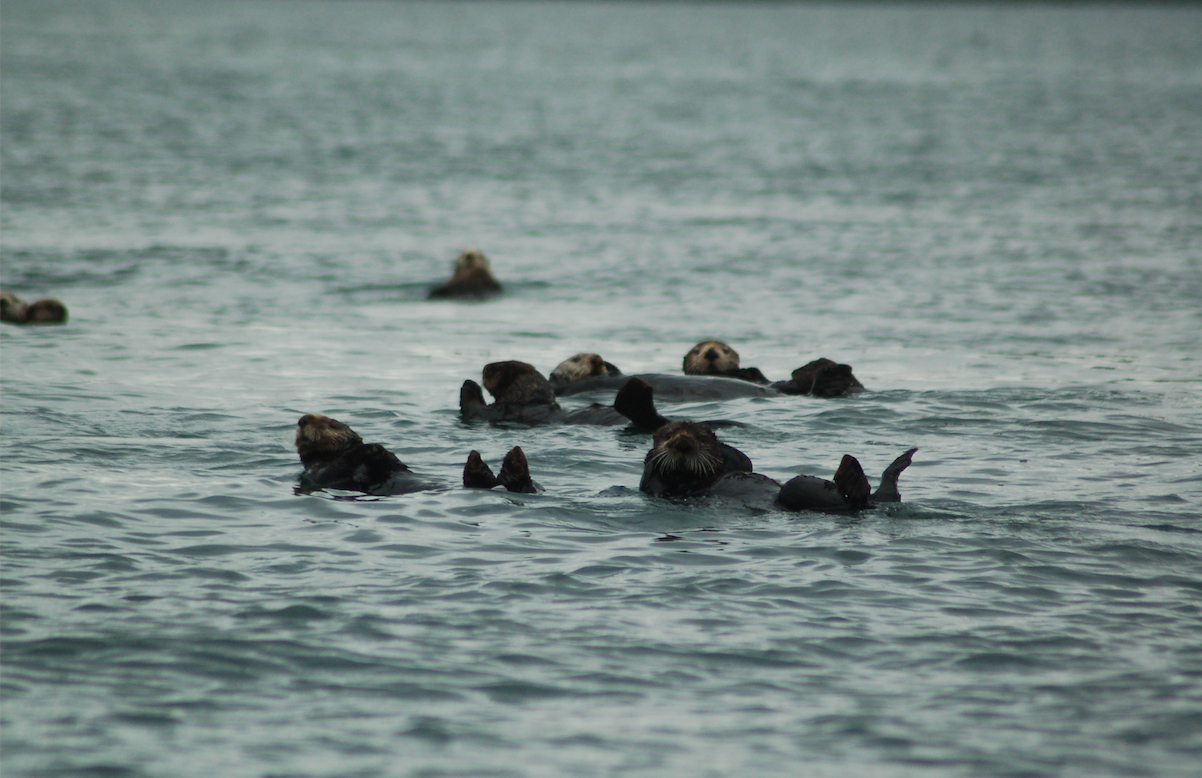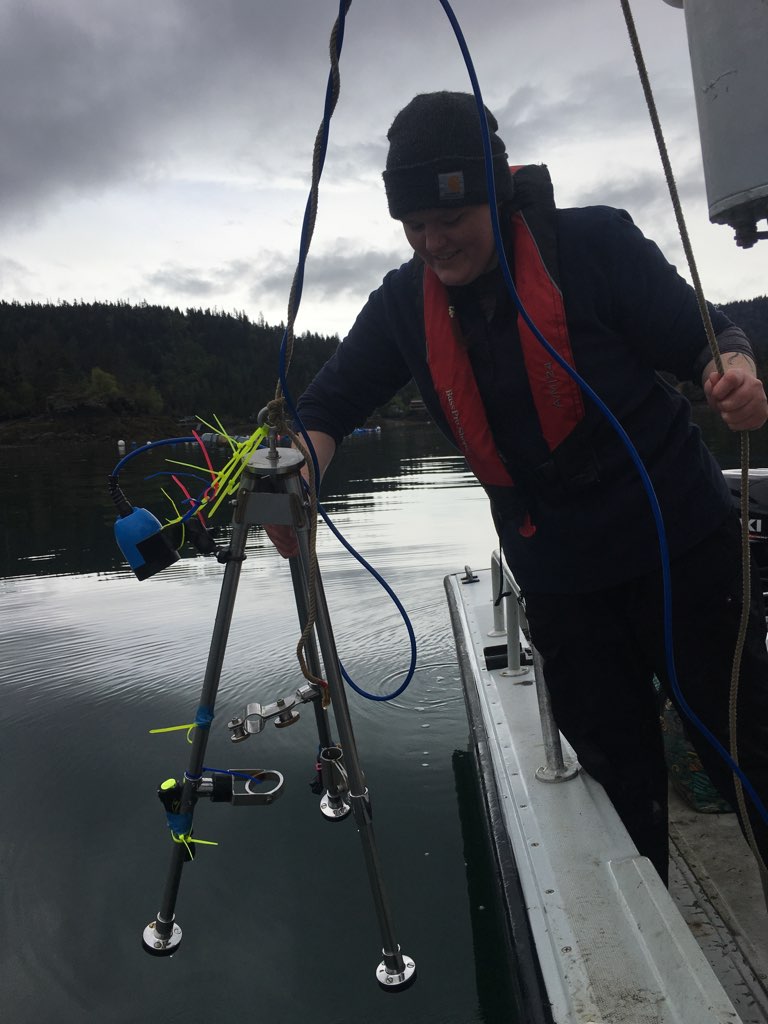Samantha Allen
Comparing Sea Otter Prey Consumption to Epibenthic Prey Availability around Mariculture in Various Weather Conditions
UAF Senior
B.S. Fisheries and Ocean Sciences
Hometown: Portland, Oregon

Samantha is a Summer 2023 Student Project Award recipient.
Under the mentorship of Emily Reynolds, CFOS Graduate Student, Samantha is conducting research in Kachemak Bay to determine if and how oyster farms influence sea otter prey availability. Her research will compare sea otter prey to the composition and relative abundance of potential prey around oyster farms and non-farm areas. This will be done through a combination of sea otter foraging observations and benthic community surveys in various weather conditions.
How is your project going so far this semester?

The project is going well! We have been able to go out into the field almost every day to maximize our chances of getting data. We have gathered foraging data in farm areas and have seen a variety of prey items, as well as in control non-farm bays. There have been some technical difficulties with the equipment, but we have been able to trouble-shoot problems in the field and use backups when need be. Working with my mentor is going well and I have learned a lot about data collection and structuring projects.
How did you find out about URSA and what encouraged you to submit an application for funding?
I learned about URSA when I was doing research on UAF in high school when deciding if I wanted to go here. There was a lot of advertisement for it online and many professors and staff mentioned it throughout my years here, so when I was encouraged to apply to continue work a project I had previously helped with by a graduate student I knew I was very excited.
How does your URSA project relate to your career or personal goals?
I have always wanted to be a marine biologist and I hope to make a career working with marine mammals. Doing a project on the behavior of sea otters fits perfectly in what I am interested in personally and professionally. This is a valuable experience that I can use moving forward in the field of marine mammal behavior and ecology, which is what I hope to study. I am getting first hand experience of what it is like to study a marine mammal’s behavior in the field and how that translates to data analysis and even using it for public education.
What specific skill sets have you developed that will aid you as you continue with your career after UAF?
This project has taught me how to structure a research project and determine realistic research questions, which will be incredibly useful as I continue into graduate school and future work in this field. I have also learned efficient and effective ways of collecting and analyzing data that I will need in order to do fieldwork and other projects as I move forward. I am getting a lot of practice in data analysis techniques and fieldwork activities, which will be a necessary foundation in post-graduation research.
If you could share one piece of advice with students interested in pursuing URSA in the future, what would you say?
I would say that it’s important to remember how things actually work in the field/when collecting data. It is easy to think of an idealized version of what you want to happen when originally planning your project, but remember that things can and will go wrong so it's important to be flexible and leave room to accommodate or have backup plans for unexpected events in your original plan.


